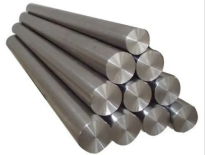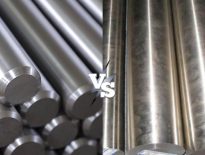Petrochemical plants run under extreme conditions. High pressure, high temperature, and corrosive chemicals are common across their systems. For these operations to work smoothly, every connection must be secure and strong. That’s where alloy steel flanges come in. They are built to handle these tough conditions. One of the most trusted options in the industry is A182 Grade F91 Alloy Steel Flanges. These flanges play a major role in keeping petrochemical systems safe, efficient, and reliable. This blog explains how alloy steel flanges support critical operations in petrochemical plants. It emphasizes the advantages and applications of A182 Grade F91 Alloy Steel Flanges in high-temperature, high-pressure systems.
What Are Alloy Steel Flanges?
Alloy steel flanges are produced from steel alloyed with materials such as chromium, molybdenum, and nickel. These metals enhance strength, toughness, and corrosion and heat resistance. These flanges are used to connect pipes, pumps, valves, and other equipment in a sealed and solid way. In petrochemical plants where systems carry hot gases and toxic fluids, these flanges are a must.
Why Use Alloy Steel in Petrochemical Plants?
Petrochemical plants turn oil and gas into products like plastics, fuels, and chemicals. The process involves high heat, strong pressure, and reactive substances. Standard carbon steel can wear out quickly in these conditions. Alloy steel lasts longer and performs better.
Alloy steel offers:
- High strength under stress
- Good resistance to corrosion
- Long service life
- Excellent performance at high temperatures
Due to these features, alloy steel flanges are preferred in places, where failure is not an option.
What Makes A182 Grade F91 Alloy Steel Flanges Special?
A182 Grade F91 Alloy Steel Flanges are made for extreme environments. They include chromium and molybdenum, which give them better resistance to heat and pressure. These flanges are often used in steam lines, heat exchangers and pressure vessels.
Key qualities of A182 F91 flanges:
- Withstand high temperatures (up to 600°C)
- Resist oxidation, and thermal fatigue
- Maintain strength over time under stress
- Suitable for power generation, and petrochemical service
Their toughness and reliability make them ideal for demanding operations.
Where are these flanges used?
- High-Pressure Lines
Fluids, and gases are frequently transported, at high pressure in petrochemical systems. Flanges made of A182 F91 can withstand this without leaking or breaking.
- Heat Exchangers
Heat is transferred between fluids by these units. In these systems, the flanges have to withstand heat and pressure. F91 alloy steel does the job well.
- Reactors and Boilers
Reactors and boilers face constant heat and harsh chemical reactions. F91 alloy flanges are designed to withstand both without damage.
- Steam Systems
Steam moves through long pipelines under high pressure. F91 flanges are strong enough to connect these lines safely.
- Pumps and Valves
Pumps and valves need secure connections to the pipe network. F91 alloy flanges keep the system leak-proof and stable.
Advantages of A182 Grade F91 Flanges
- High Temperature Resistance: Works well in stressed high-temperature systems
- Corrosion Resistant: Withstands tough chemicals and gases
- Durability: Constructed for extended use under stress
- Consistent Strength: Maintains shape, and seal while under load
- Low Maintenance: Less frequent replacements or repairs needed
These advantages assist in maintaining petrochemical plants operating smoothly and safely.
Safety and Performance
In petrochemical operations, safety is non-negotiable. Even a small leak can lead to serious problems. A182 Grade F91 flanges help avoid such risks. Their ability to stay strong under pressure makes them dependable in critical systems.
They also improve system efficiency. Good flange performance means fewer breakdowns and less downtime. This results in better plant productivity and lower operating costs.
Quality and Testing
To make sure these flanges perform well, they are tested against strict standards. Some common tests and checks include:
Pressure Testing: To confirm they can handle the rated load
Visual and Dimensional Inspection: To ensure perfect fit and finish
Material Testing: To verify chemical makeup and strength
These checks are done according to ASTM A182 and other industrial standards. This procedure guarantees every flange has the quality required for petrochemical applications.
- Storage and Handling Advice
- To maintain alloy steel flanges in excellent condition:
- Store them in a clean dry place
- Don’t expose them to moisture
- Check for damage prior to installation
- Use proper gaskets, and bolts when sealing
Proper care prolongs the life of the flanges and ensures safety in the system.
Final Thoughts
Alloy steel flanges are essential in petrochemical plants. They offer the strength, and resistance needed to keep high-pressure and high-temperature systems working without fail. Among the best choices for these tasks are A182 Grade F91 Alloy Steel Flanges. Their ability to resist heat, corrosion, and stress makes them a trusted solution in this field.
By choosing quality flanges, plant operators improve safety, reduce maintenance, and boost efficiency. For tough jobs in petrochemical systems, F91 alloy flanges deliver long-lasting performance that meets industry demands.



